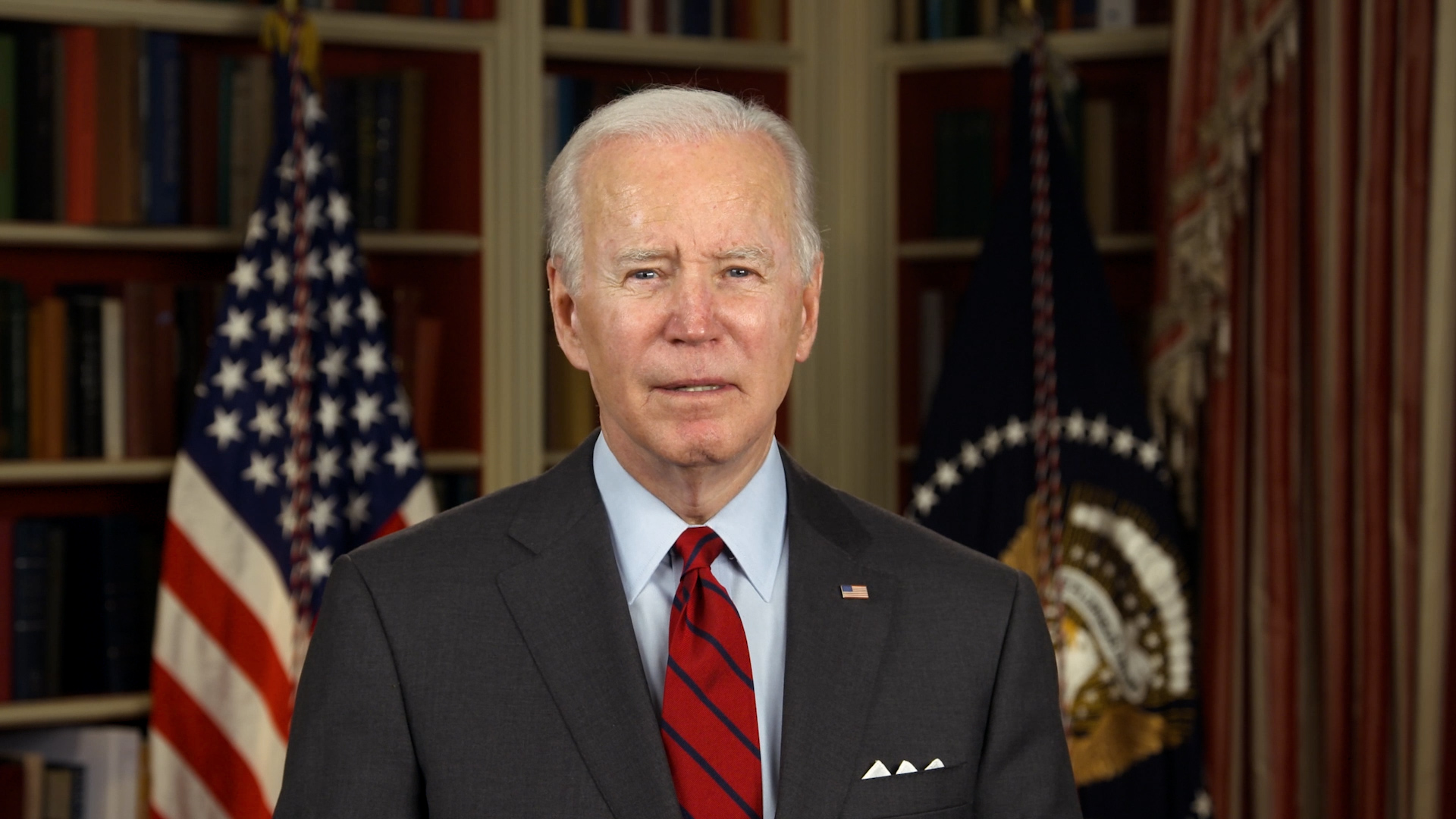 attends a virtual meeting with the President’s Council of Advisors on Science and Technology" width="1920" height="1080" />
attends a virtual meeting with the President’s Council of Advisors on Science and Technology" width="1920" height="1080" /> attends a virtual meeting with the President’s Council of Advisors on Science and Technology" width="1920" height="1080" />
attends a virtual meeting with the President’s Council of Advisors on Science and Technology" width="1920" height="1080" />
“It is therefore the policy of my Administration that the Federal Government should pursue a comprehensive approach to advancing equity for all, including people of color and others who have been historically underserved, marginalized, and adversely affected by persistent poverty and inequality. Affirmatively advancing equity, civil rights, racial justice, and equal opportunity is the responsibility of the whole of our Government.”
Executive Order 13985
On his first day in office, President Biden signed Executive Order 13985, Advancing Racial Equity and Support for Underserved Communities Through the Federal Government. The Order recognized that, although the ideal of equal opportunity is the bedrock of American democracy, our laws, public policies, and institutions too often exacerbate disparities or deny equal opportunity to individuals and communities. The President’s Order emphasized the enormous human costs of systemic racism, persistent poverty, and other disparities, and directed the Federal Government to advance an ambitious, whole-of-government equity agenda that matches the scale of the challenges we face as a country and the opportunities we have to build a more perfect union.
In recognition that advancing equity is a generational commitment that will require sustained federal leadership and partnership with all communities, President Biden signed Executive Order 14091 on February 16, 2023. The President’s second Executive Order on equity directs the Federal Government to further build equity into the everyday business of government and continue the work to make the promise of America real for everyone, including rural communities, communities of color, Tribal communities, LGBTQI+ (Lesbian, Gay, Bisexual, Transgender, Queer, and Intersex) individuals, people with disabilities, women and girls, and communities impacted by persistent poverty.
Over the last three years, the Biden-Harris Administration has championed racial equity and further advanced equal opportunity for underserved communities through landmark legislation including the American Rescue Plan, Bipartisan Infrastructure Law, CHIPS and Science Act, and Inflation Reduction Act, as well as through historic executive actions. 90 agencies across the Federal Government created and released Equity Action Plans on April 14, 2022 — first-of-their-kind roadmaps to address the barriers and discrimination that underserved communities face. However, members of underserved communities — many of whom have endured generations of discrimination and disinvestment — still confront significant barriers to realizing the full promise of America: persistent poverty and food insecurity; unequal distribution of state and local school aid; inequitable access to clean water and clean air; and exposure to environmental toxins in rural, urban, and Tribal communities, and in U.S. territories; pay inequities that overwhelmingly impact women, people of color, and people with disabilities; poor health outcomes, including disparities in maternal health; and unequal access to loans and bias in the housing appraisal system. The Federal Government has a responsibility to make every effort to remove these barriers and ensure equal opportunity for every person in America.
In accordance with Executive Order 14091, federal agencies updated their Equity Action Plans in 2023, to address potential barriers that underserved communities may continue to face in accessing and benefitting from the agency’s policies, programs, and activities, including procurement, contracting, and grant opportunities. The updated Plans include over 100 new commitments and strategies that 23 of the largest federal agencies will undertake in 2024 and beyond, as well as new actions from smaller and independent agencies, to advance racial equity and support for underserved communities under the umbrella of eight whole-of-government equity objectives. These collective efforts are furthering the Biden-Harris Administration’s priority of building a more equitable nation. Learn about the Biden-Harris Administration’s progress to advance racial equity and support for underserved communities in a new report, which includes a sample of the more than 650 accomplishments since the release of the 2022 Equity Action Plans.
The Biden-Harris Administration has a far-reaching equity agenda, which also includes implementing the first-ever national strategy on gender equity and equality; working to ensure the Federal Government is a model for diversity, equity, inclusion, and accessibility in the workforce; delivering environmental justice through the Justice40 Initiative; and advancing LGBTQI+ civil rights. These commitments also reflect attention to the reality that some individuals experience discrimination based on multiple factors.
The Administration remains committed to deepening the partnership between government and individuals and communities impacted by discrimination to deliver more equitable outcomes across our nation.